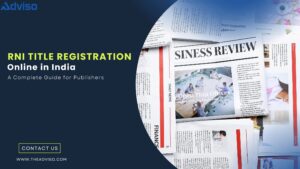Corporate Agency License
The insurance business is promising and remarkably growth-oriented. However, it is not easy to operate due to stringent compliances. Companies offering life, general, and health insurance services are often subject to numerous challenges, causing them to underperform at times. That’s where a corporate agent, be it a firm or agent, emerges as a savior. Acting as an intermediary between a company and insurance seekers, these agents help insurance firms overcome numerous pitfalls such as low sales, ineffective marketing, non-compliance, mediocre claim settlements, etc. Since these agents fall under the IRDAI, they need legal approval to get started, meaning offering services to clients. The article takes a brief look at what is corporate agency license, its legalities, and operational norms.
What is a Corporate Agency License?
A corporate agency license refers to a registration granted by the IRDAI i.e. Insurance Regulatory and Development Authority of India. This license enables entities to promote and service insurance products on the client’s behalf i.e. insurer. Just like other IRDAI approvals, a corporate agency license revolves around several norms concerning registration and operation. Entities with such a license play a key role in streamlining the insurer’s operations while staying in adherence to IRDAI’s norms.
Who Can Apply for a Corporate Agency License?
The following entities stand eligible to apply for a corporate agency license:
| Entity Type | Description |
| Registered Company | Incorporated under the Companies Act, 2013, or any preceding company registration laws. |
| Limited Liability Partnership (LLP) | Formed and registered under the Limited Liability Partnership Act, 2008. |
| Co-operative Society | Registered in accordance with the Co-operative Societies Act, 1912. |
| Banking Company | Defined under the Banking Companies Act, 1949. |
| Regional Rural Bank | Established under the Regional Rural Banks Act, 1976. |
| NGOs or Micro-Lending Organizations | Includes non-banking financial companies (NBFCs) registered with the Reserve Bank of India. |
| Any Other Recognized Entity | As specified and recognized by IRDAI. |
Check out our stories: Best Business Consultant in Noida
Steps to Register for a Corporate Agency License
Post adhering to the license requirements, you can follow the given steps carefully:
1. Obtain Login Credentials through Portal
Head to the IRDAI’s website to access the Corporate Agency Portal. Once done, upload the given paperwork as advised by the portal.
| Document | Description |
| Certificate of Incorporation | Proof that the organization is a registered legal entity. |
| Net Worth Certificate | Reflects the organization’s financial standing. |
| Memorandum of Association | Specifies the organization’s purpose. |
| Audited Financial Statements | Financial records from the last two years, required to verify the organization’s financial history. |
After uploading these dossiers, IRDAI provides login credentials, allowing access to the portal.
2. Complete the Application and Upload Required Documents
This step involves application filling followed by document uploading. Make sure to double-check every detail you enter to avoid processing hassle or delay. Once done, go on to upload the given documents.
| Document | Description |
| Company Profile | Summarizes key details and background of the business. |
| Form A | Official application form required for corporate agent registration. |
| Certificate of Registration | Confirms compliance with all regulatory registration standards. |
| Organization Chart | Shows company structure, highlighting the Principal Officer (PO) responsible for insurance operations. |
| Net Worth and Memorandum Documents | Verifies financial standing and provides insights into the organization’s purpose and structure. |
| Principal Officer’s Qualifications | Includes certifications, training, and examination records for the appointed Principal Officer. |
| Board-Approved Policy | Details business strategy, partnership choices, and procedures for handling customer grievances |
3. Pay Fees
As soon as the authority approves the application, you can submit the required fee. Refer to the table below to learn about the fee structure:
| Fee Category | Amount |
| Application Processing Fee | ₹10,000 |
| Corporate Agent Registration Fee | ₹25,000 |
| Principal Officer Certificate Fee | ₹500 |
| Specified Person Certificate Fee | ₹500 per certificate |
4. Submit Additional Disclosures and Declarations
IRDAI seeks given disclosures and declarations for scrutiny as a part of compliance. Submission of the same is paramount to ensure hassle-free processing.
- Foreign Direct Investment (FDI): If your organization has secured foreign capital, share this on the portal.
- Principal Officer’s Role: A declaration detailing the roles of the appointed principal officer that he/she will take.
- Other Registrations: A declaration affirming that the entity is not engaged with any business except the proposed one.
Post-Registration Activities
Once your firm is certified by IRDAI to serve the role of corporate agent for insurers, it’s time to nail down the operational compliances to stay legally afloat. Some of the key compliances are as follows:
| Action | Description |
| Download Certificates | Access and obtain the Corporate Agency Registration Certificate and the Principal Officer’s License. |
| Submit Specified Person Checklists | Verify that all individuals involved in insurance sales possess the required Specified Person (SP) certification. |
| Upload Tie-Up Agreements | Submit documents detailing your established partnerships with insurers. |
| Submit Half-Yearly and Annual Returns | Complete periodic reporting to ensure compliance and keep IRDAI updated on your business operations. |
Frequently Asked Questions
Here are some common questions about the corporate agency license process:
1. How long does it take to obtain a corporate agency license?
The timeline varies, but with prompt document submission and fee payment, it typically takes several weeks to a few months for IRDAI to review your application and issue the license.
2. Can we partner with multiple insurers under a single corporate agency license?
Yes, IRDAI permits corporate agents to work with multiple insurers. However, you’ll need to disclose your approach in your business policy and maintain transparency regarding each partnership.
3. What are the renewal requirements for the corporate agency license?
Corporate agency licenses generally require renewal every three years. The renewal process involves additional disclosures and submission of updated financials to ensure continued compliance.
4. What if my organization does not meet the minimum net worth requirement?
The minimum net worth is a mandatory requirement. If your organization doesn’t meet this threshold, it won’t be eligible for a corporate agency license. Consulting with a financial advisor may help in meeting the required standards.
5. Can an NGO apply for a corporate agency license?
Yes, NGOs can apply for a corporate agency license, provided they meet the eligibility requirements and comply with IRDAI’s guidelines for corporate agents.
Final Thoughts
Insurance is among the key sectors that contribute heavily to the nation’s growth. This diverse sector fosters various verticals, including life, general, and health insurance, making it a compliance-intensive domain. The insurance sector provides a perfect combination of growth and challenges to entities. Speaking of challenges, surviving in a cut-throat insurance sector is not easy as it adheres to stringent compliances. From registration to operation, insurance-based companies are often subjected to norms that aren’t easy to comply with. That’s where an expert supervision of Adviso comes into play. Regardless of requirements, we help entities navigate the labyrinth of complicated compliances seamlessly, ensuring a hassle-free business journey.
Also Read: Getting Licensed as a Third-Party Administrator in the Insurance Sector




